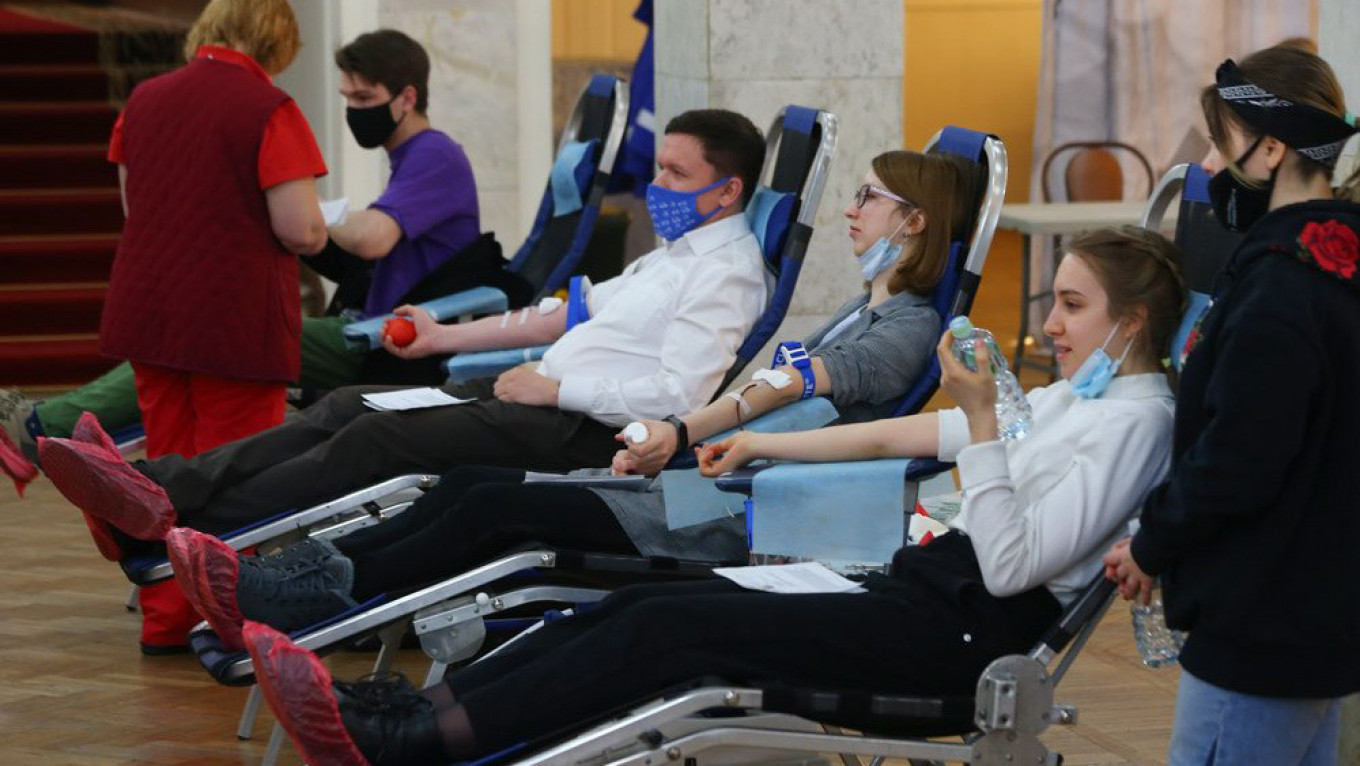
Clinical trial volunteers for Russia’s second coronavirus vaccine have demanded the country’s Health Ministry launch an investigation to explore claims the jab does not produce an immune response.
The group — which is currently taking part in Phase 3 studies for Russia’s EpiVacCorona shot, a peptide vaccine developed by the Vektor Institute in Novosibirsk — say they have conducted their own independent analysis of antibody levels which throws doubts on developers’ claims that the jab produces an immune response in 100% of recipients.
Their analysis of 116 members of the Phase 3 clinical trials, which were launched in mid-November, shows 52 failed to develop antibodies. Given that only 25% of the total 3,000 participants in the trial were given a placebo, the group calculated the likelihood that all 52 in their independent analysis were in the placebo group — and thus would not be expected to produce antibodies — at just one in 333,000.
“Therefore, it can be concluded that a significant portion of those vaccinated with EpiVacCorona were unable to develop antibodies after being vaccinated. Roughly speaking, this can be estimated at around a quarter of the clinical trial participants who were vaccinated,” the trial participants said in the open letter published Monday.
The group also analyzed samples from 19 people who were administered the EpiVacCorona vaccine as part of Russia’s nationwide vaccination campaign. It found four had not developed antibodies.
The Russian government approved EpiVacCorona for use in mid-October, one month before late-stage Phase 3 clinical trials started, based on earlier studies which claimed the vaccine developed an immune response among 100% of test subjects.
The Vektor Institute has already been forced to dismiss earlier concerns about the absence of antibodies among those vaccinated, saying that the vaccine’s peptide-based formula means normal antibody tests cannot detect its specific immune response. The group’s independent analysis was based on a special testing kit developed by the Vektor Institute.
No peer-reviewed research on the jab has yet been published. In an interview with the independent Meduza news site published Monday, developers said they had submitted papers to various journals and hoped something would be published shortly.
No neutralization
The group raised concerns not only about the absence of antibodies, but also the levels and kind of antibodies produced by the vaccine.
“The antiviral protection of these antibodies has also raised questions,” they wrote, citing another of their independent analyses which found a lack of neutralizing antibodies in subjects vaccinated with EpiVacCorona who hadn’t previously contracted Covid-19.
Conversely, neutralizing antibodies were present in a control group of both those who had received Russia’s first coronavirus vaccine, Sputnik V, and Covid-19 patients.
In fact, the group found that the only person from a group of 20 to develop neutralizing antibodies after receiving EpiVacCorona had previously contracted Covid-19.
The trial volunteer group, led by molecular biologist Denis Lagutkin, has requested Russia’s Health Ministry launch an investigation into the apparent discrepancies.
“The data obtained contradict the statements made by Vektor representatives in the media regarding the observed neutralization of the virus [by the vaccine], and definitely indicate the need for independent rechecking.”
Vektor scientists say 545,000 doses of EpiVacCorona will have been produced and distributed in Russia by the end of March.
Despite being the first country in the world to approve a coronavirus vaccine with Sputnik V, Russia’s vaccination campaign has seen a slow uptake, beset by logistical challenges and widespread public skepticism. The government does not share nationwide statistics on the number of completed vaccinations, but independent analysis suggests around 6.2 million people — 4.3% of Russia’s population — have received at least one vaccine dose.